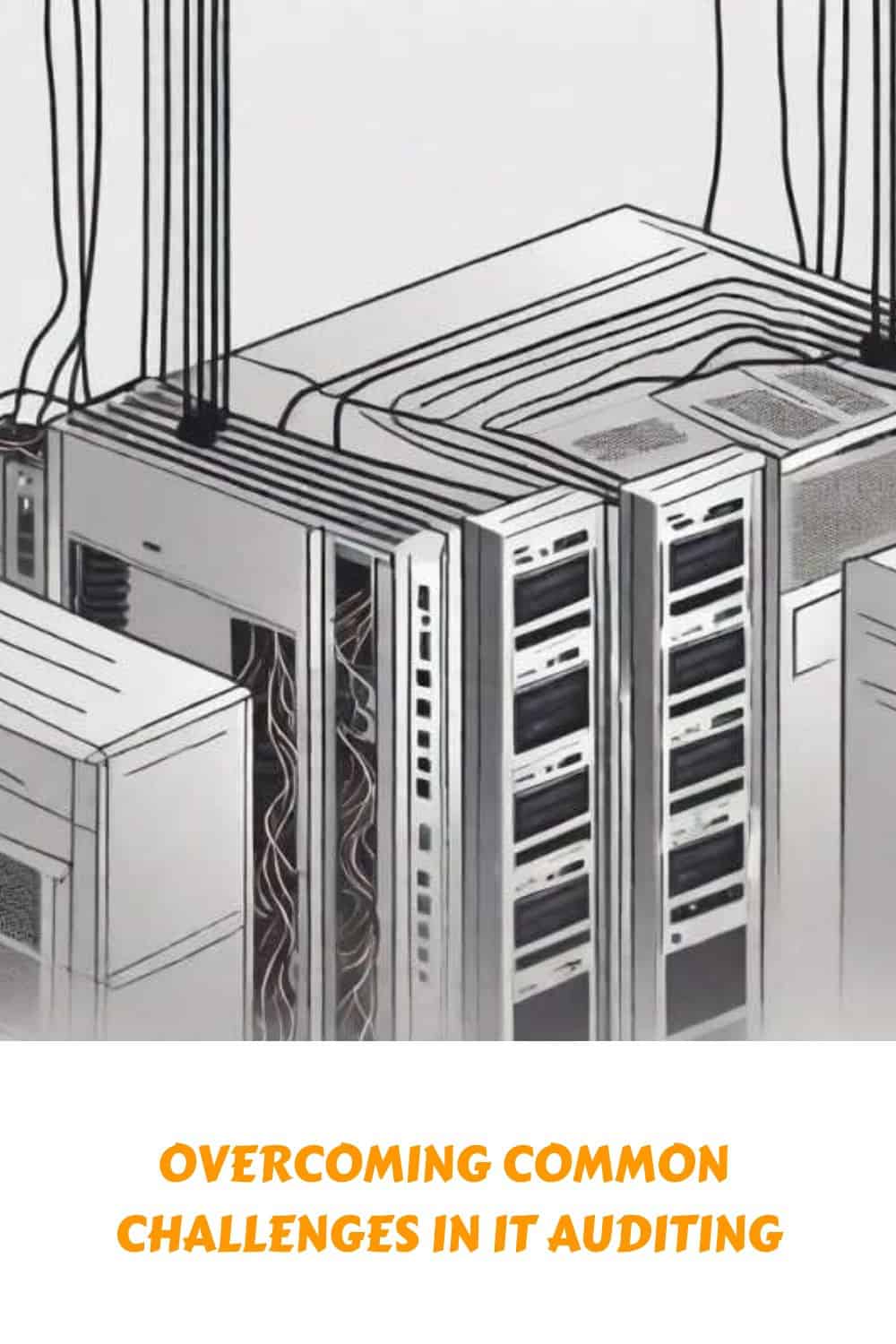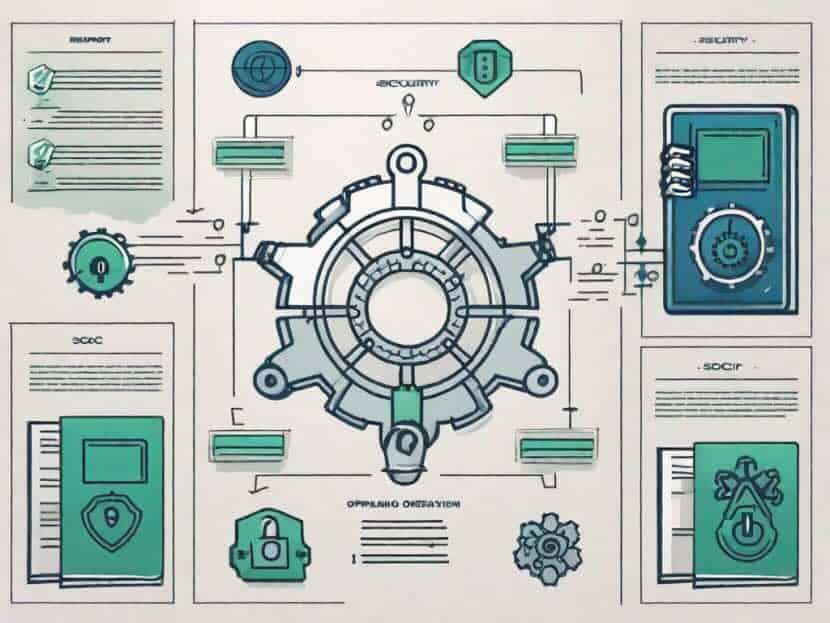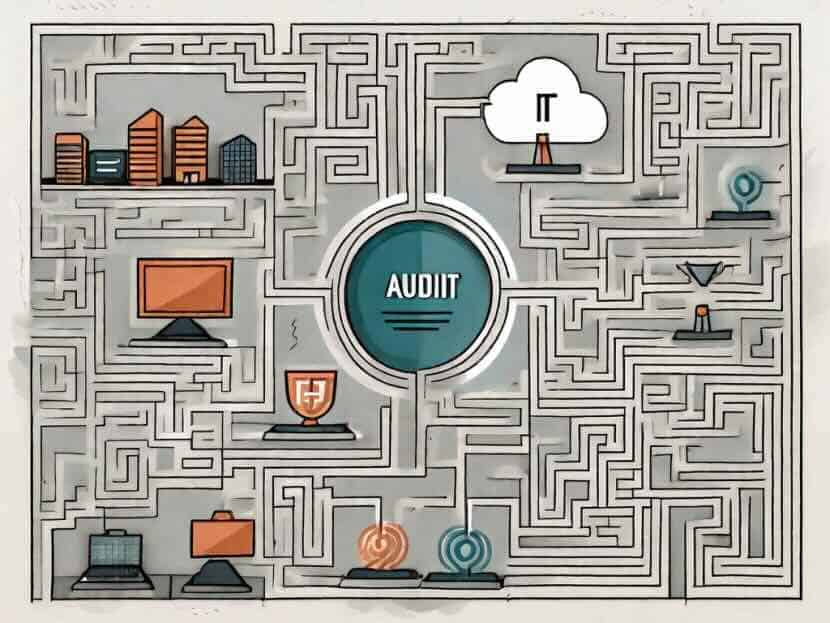In today’s technology-driven world, IT auditing plays a crucial role in ensuring the security and efficiency of organizations’ information systems. However, like any profession, IT auditors face various challenges in their day-to-day work. In this article, we will explore some common obstacles that IT auditors encounter and discuss strategies for overcoming them.
Addressing technical complexities and challenges
One of the primary challenges faced by IT auditors is dealing with the ever-evolving technical landscape. Technology evolves at a rapid pace, introducing new complexities and risks that auditors must stay informed about. Additionally, auditors need to possess a solid understanding of various technologies, such as cloud computing, data analytics, and cybersecurity. This knowledge gap can be overwhelming, but there are strategies to overcome it.
First and foremost, ongoing professional development is key. IT auditors should proactively seek opportunities to enhance their technical skills through training, certifications, and industry conferences. Staying up to date with the latest technological advancements enables auditors to assess controls and identify potential risks effectively. Furthermore, fostering a network of IT professionals and staying connected with industry experts can provide valuable insights and support when facing technical challenges.
When it comes to cloud computing, auditors must understand the different deployment models, such as public, private, and hybrid clouds. They need to be familiar with each model’s associated risks and control frameworks. This includes assessing the security measures in place, such as encryption, access controls, and data segregation, to ensure the confidentiality, integrity, and availability of data stored in the cloud.
Data analytics is another area that poses challenges for IT auditors. With data’s increasing volume and complexity, auditors must have the skills to effectively analyze and interpret data to identify patterns, anomalies, and potential risks. This requires proficiency in data manipulation and visualization tools and knowledge of statistical techniques and data mining algorithms.
Cybersecurity is a critical concern for IT auditors as organizations face an ever-growing threat landscape. Auditors need to understand the latest cybersecurity threats, vulnerabilities, and attack vectors. They must assess the effectiveness of security controls, such as firewalls, intrusion detection systems, and encryption protocols, to ensure the protection of sensitive information and the integrity of systems and networks.
In addition to technical knowledge, IT auditors must also possess strong communication and collaboration skills. They need to effectively communicate complex technical concepts to non-technical stakeholders, such as management and board members, in a clear and concise manner. Collaboration with other departments, such as IT and risk management, is essential to ensure a holistic approach to auditing and addressing technical challenges.
Overall, addressing technical complexities and challenges requires a continuous commitment to learning and staying informed about the latest technological advancements. By enhancing technical skills, fostering professional networks, and adopting a collaborative approach, IT auditors can effectively navigate the ever-evolving technical landscape and provide valuable insights to organizations.
Time management and dealing with work pressure
Another significant challenge in IT auditing is managing time and dealing with work pressures effectively. With multiple projects and deadlines to meet, auditors often find themselves juggling competing priorities. This can lead to stress and affect the quality of their work. However, implementing effective time management techniques can help overcome this challenge.
One approach is to break down tasks into smaller, manageable chunks. By breaking down a project into smaller components, auditors can create a detailed schedule and prioritize tasks based on their importance and deadlines. This not only helps auditors stay organized and focused but also allows them to understand the steps required to complete each task clearly.
Moreover, setting realistic expectations and deadlines with clients and stakeholders is crucial in managing work pressure. By clearly communicating the time required to complete a task and negotiating deadlines, auditors can alleviate unnecessary stress and ensure that they have sufficient time to deliver high-quality work.
However, time management is not just about dividing tasks and setting deadlines. It is also essential for auditors to take regular breaks and practice self-care. Engaging in activities outside of work, such as exercise or hobbies, can reduce stress and improve overall well-being. Research has shown that taking breaks throughout the day can actually enhance productivity and creativity. Therefore, auditors should make it a priority to incorporate short breaks into their schedules.
In addition to self-care, effective communication with colleagues and supervisors is crucial in managing work pressure. Auditors should feel comfortable seeking support when needed and delegating tasks when possible. By sharing the workload and collaborating with team members, auditors can reduce the pressure on themselves and ensure that tasks are completed efficiently.
Furthermore, auditors should also consider implementing time management tools and techniques. There are numerous digital tools available that can help auditors track their time, set reminders, and manage their workload effectively. These tools can provide valuable insights into how time is being allocated and help auditors identify areas where improvements can be made.
In conclusion, managing time and dealing with work pressures are significant challenges in IT auditing. However, by implementing effective time management techniques, such as breaking down tasks, setting realistic expectations, taking breaks, and seeking support, auditors can overcome these challenges and deliver high-quality work. It is essential for auditors to prioritize their well-being and ensure that they have a healthy work-life balance to thrive in this demanding field.
Navigating through uncertainty and change in IT
In the rapidly changing field of IT, auditors often encounter uncertainty and ambiguity. New technologies, regulatory requirements, and internal organizational changes can create challenges when evaluating controls and assessing risks. Auditors must adopt a proactive and adaptable mindset to navigate these uncertainties.
Continuous learning and staying informed about industry trends and regulatory changes are vital. Subscribing to industry publications and joining professional organizations can provide auditors with valuable resources and insights. By actively participating in webinars, conferences, and workshops, auditors can effectively enhance their knowledge and skills to address the evolving IT landscape.
Moreover, auditors should develop a strong network of peers and experts in the field. Engaging in discussions and knowledge-sharing sessions with fellow auditors can help gain different perspectives and approaches to dealing with uncertainties. Collaborating with others can also facilitate the exchange of best practices and lessons learned, enabling auditors to stay ahead of the curve.
Additionally, maintaining open lines of communication with IT and business stakeholders helps auditors stay updated on any changes that might impact their audit work. Regular meetings, email updates, and informal conversations can provide auditors with valuable insights into ongoing projects, system upgrades, and emerging risks. By establishing strong relationships with key stakeholders, auditors can proactively identify potential risks and ensure that appropriate controls are in place.
Furthermore, auditors should embrace a mindset of continuous improvement. By regularly evaluating and enhancing their audit methodologies and techniques, auditors can adapt to the changing IT environment. This includes leveraging data analytics tools and technologies to enhance the efficiency and effectiveness of audits. By embracing innovation and exploring new approaches, auditors can better navigate through uncertainties and changes in IT auditing.
Flexibility and adaptability are key attributes in overcoming uncertainties and IT auditing changes. Auditors must be prepared to adjust their audit plans and procedures to address emerging risks and challenges. This requires a willingness to learn, unlearn, and relearn as the IT landscape evolves. By embracing change and being open to new ideas, auditors can effectively navigate through uncertainties and contribute to the overall success of IT governance and risk management.
Advancing Your IT Audit Career
Beyond overcoming day-to-day challenges, IT auditors often aspire to advance their careers and explore different avenues within the field. Let’s examine some strategies for career advancement in IT auditing.
As technology continues to evolve at a rapid pace, IT auditors have the opportunity to specialize in various areas to stay ahead of the curve. By expanding their skillset and knowledge, auditors can position themselves for exciting career opportunities and professional growth.
Exploring career paths within IT auditing
IT auditing offers a diverse range of career paths, each with its unique set of opportunities and challenges. Auditors can specialize in areas such as cybersecurity, data analytics, or IT risk management. By honing their skills in these specializations, auditors can position themselves as subject matter experts and increase their marketability in the industry.
For example, auditors who specialize in cybersecurity can focus on assessing and mitigating risks related to data breaches, network vulnerabilities, and emerging threats. This specialization allows them to work closely with IT teams to implement robust security measures and ensure the protection of sensitive information.
On the other hand, auditors who specialize in data analytics can leverage their expertise to analyze large datasets and identify patterns or anomalies that may indicate potential risks or areas for improvement. This skill set is highly valuable in today’s data-driven business landscape, where organizations rely on data to make informed decisions.
Furthermore, auditors who specialize in IT risk management can play a crucial role in helping organizations identify and mitigate risks associated with their IT infrastructure. They can assess the effectiveness of controls, develop risk management frameworks, and provide recommendations for improving overall risk posture.
Opportunities for leadership and specialization
Seeking opportunities for leadership roles within the organization can also contribute to career growth. Taking on initiatives, leading audit teams, or participating in cross-functional projects can showcase an auditor’s leadership abilities and broaden their professional network.
By demonstrating strong leadership skills, auditors can gain their colleagues’ and superiors’ trust and respect. This can open doors to higher-level positions, such as IT audit manager or director, where they can oversee the entire audit function and provide strategic guidance to the organization.
Additionally, auditors can consider pursuing professional certifications in leadership or project management to enhance their credentials further and demonstrate their commitment to continuous improvement.
Building a personal brand in IT auditing
Building a personal brand in IT auditing is essential for career advancement. This can be achieved by actively participating in professional communities, sharing expertise through articles or presentations, and nurturing relationships with industry leaders. A strong personal brand enhances an auditor’s credibility and opens doors to new career opportunities.
For example, auditors can contribute to industry publications or blogs, sharing their insights and best practices. They can also volunteer to speak at conferences or webinars, showcasing their expertise and establishing themselves as thought leaders in the field.
Networking is another crucial aspect of building a personal brand. Auditors can attend industry events, join professional associations, and engage in online communities to connect with like-minded professionals and expand their professional network. These connections can lead to mentorship opportunities, job referrals, and collaborations on projects.
Action plan for continuing the IT audit career journey
Continuing professional development is crucial for long-term career growth in IT auditing. Auditors should create an action plan with specific goals and milestones. This plan can include obtaining certifications, pursuing advanced degrees, or acquiring additional technical skills. Regularly reviewing and updating the action plan ensures that auditors stay on track with their professional development.
For instance, auditors can set a goal to obtain relevant certifications such as Certified Information Systems Auditor (CISA) or Certified in Risk and Information Systems Control (CRISC). These certifications validate their expertise and demonstrate their commitment to professional excellence.
In addition to certifications, auditors can consider pursuing advanced degrees in fields such as information systems, cybersecurity, or business administration. These degrees provide a deeper understanding of complex IT audit concepts and can open doors to higher-level positions.
Furthermore, auditors should stay updated with the latest industry trends and emerging technologies. This can be achieved through attending conferences, participating in webinars, or enrolling in online courses. By staying ahead of the curve, auditors can position themselves as valuable assets to organizations seeking to navigate the ever-changing IT landscape.
Encouragement and motivation for ongoing growth and learning
Lastly, it is important for auditors to seek motivation and encouragement throughout their career journey. Engaging in mentorship programs, attending industry events, or joining online communities can support auditors to continue their growth and learning.
Mentorship programs can connect auditors with experienced professionals who can provide guidance, advice, and insights based on their own career journeys. These mentors can offer valuable perspectives, help auditors navigate challenges, and make informed decisions.
Attending industry events, such as conferences or seminars, allows auditors to network with peers and industry leaders. These events often feature keynote speakers, panel discussions, and workshops providing valuable insights and inspiring auditors to explore new ideas and approaches.
Additionally, joining online communities, such as professional forums or social media groups, provides a platform for auditors to connect with like-minded professionals, share experiences, and seek advice. These communities foster a sense of belonging and provide a space for ongoing learning and collaboration.
Training & Retaining IT Auditing Staff
As organizations increasingly recognize the importance of IT auditing, recruiting and retaining skilled IT auditors becomes critical. Let’s explore some best practices for training and retaining IT auditing staff.
IT auditing plays a crucial role in ensuring the security and integrity of an organization’s information systems. With the ever-evolving technology landscape, it is essential for organizations to have a well-trained and competent IT audit team. Here are some strategies to consider:
Invest in training and professional development
Organizations should invest in training programs to ensure that IT auditors receive the necessary skills and knowledge to perform their roles effectively. This includes providing opportunities for professional certifications, facilitating attendance at relevant conferences and seminars, and offering continuous learning initiatives.
By investing in training and professional development, organizations not only enhance the skills of their IT auditors but also demonstrate a commitment to their employees’ growth and success. This can boost employee morale and motivation, leading to increased job satisfaction and retention.
Create a supportive work environment
A positive and supportive work environment is key to attracting and retaining talented IT auditors. Foster a culture that encourages open communication, collaboration, and innovation. Recognize and reward employees’ contributions and provide opportunities for growth and advancement within the organization.
Additionally, organizations can implement flexible work arrangements and work-life balance initiatives to promote employee well-being. This can help reduce burnout and increase job satisfaction among IT auditors, leading to higher retention rates.
Mentoring and coaching programs
Implementing mentoring and coaching programs can help new IT auditors develop their skills and navigate the complexities of the profession. Pairing experienced auditors with junior staff members allows for knowledge transfer, professional guidance, and career development.
These programs can provide valuable support and guidance to new IT auditors, helping them build confidence and competence in their roles. By fostering a culture of mentorship, organizations can create a sense of community and camaraderie within the IT audit team, further enhancing employee engagement and retention.
Embrace diversity and inclusion
Promoting diversity and inclusion within the IT audit team can enhance creativity, productivity, and overall team performance. Encourage the recruitment of individuals from different backgrounds and perspectives. Providing a supportive and inclusive environment for all staff members leads to higher job satisfaction and employee retention.
Organizations can establish diversity and inclusion initiatives, such as employee resource groups and diversity training programs, to foster a sense of belonging and ensure equal opportunities for career growth. By embracing diversity, organizations can tap into a wider range of perspectives and ideas, leading to more effective IT audit practices.
Organizations can create a strong and resilient IT audit team by implementing these best practices. Investing in training and professional development, fostering a supportive work environment, implementing mentoring and coaching programs, and embracing diversity and inclusion are all essential steps toward attracting and retaining skilled IT auditors.
Best Practices for Navigating IT Auditing Challenges
As IT auditors face various challenges in their profession, it is essential to implement best practices to navigate these obstacles effectively. Consider the following strategies:
- Stay up to date with technological advancements through continuous learning
- Implement effective time management techniques to handle work pressures
- Be adaptable and proactive in the face of uncertainties and changes in IT
- Explore different career paths and build a personal brand within IT auditing
- Invest in training and create a supportive work environment for IT auditors
- Establish mentoring and coaching programs to support professional development
- Promote diversity and inclusion within the IT audit team
By following these best practices, IT auditors can overcome common challenges and thrive in their careers. Embracing continuous learning, adapting to change, and fostering a supportive environment are key strategies to ensure success in the ever-evolving field of IT auditing.
Continuous learning is crucial for IT auditors to stay ahead in their profession. With technology advancing at a rapid pace, it is essential to keep up with the latest trends, tools, and techniques. This can be achieved through attending industry conferences, participating in webinars, and enrolling in relevant courses or certifications. By staying up to date, IT auditors can better understand emerging risks and develop effective strategies to mitigate them.
Effective time management is another critical aspect of navigating IT auditing challenges. The workload of an IT auditor can be demanding, with multiple projects and deadlines to meet. Implementing techniques such as prioritization, delegation, and setting realistic goals can help auditors manage their time efficiently. By effectively managing their workload, IT auditors can reduce stress and ensure that all tasks are completed in a timely manner.
Adaptability and proactiveness are essential qualities for IT auditors. The field of IT is constantly evolving, with new technologies and threats emerging regularly. IT auditors need to be adaptable to changes and uncertainties, quickly understanding and addressing emerging risks. Being proactive in identifying potential issues and implementing preventive measures can help IT auditors stay ahead of the curve and minimize the impact of any disruptions.
While IT auditing is a specialized field, it offers various career paths for professionals to explore. IT auditors can choose to specialize in specific areas such as cybersecurity, data analytics, or compliance. By diversifying their skill set and building a personal brand within IT auditing, professionals can position themselves as experts in their chosen niche. This can lead to exciting career opportunities and increased job satisfaction.
Investing in training and creating a supportive work environment is crucial for the success of IT auditors. Organizations should provide adequate resources and training opportunities to help auditors enhance their skills and knowledge. Additionally, fostering a supportive work environment that encourages collaboration, knowledge sharing, and open communication can boost the morale and productivity of IT auditors. This can lead to higher job satisfaction and retention rates within the IT audit team.
Mentoring and coaching programs play a vital role in the professional development of IT auditors. Experienced auditors can mentor junior professionals, providing guidance, feedback, and support. This helps junior auditors develop their skills, gain valuable insights, and navigate challenges more effectively. By establishing a culture of mentorship, organizations can foster continuous learning and growth within their IT audit teams.
Promoting diversity and inclusion within the IT audit team is the right thing to do and beneficial for the organization. A diverse team brings together individuals with different backgrounds, perspectives, and experiences. This diversity of thought can lead to more innovative solutions, better decision-making, and improved risk management. By creating an inclusive environment where all team members feel valued and respected, organizations can attract and retain top talent in the field of IT auditing.









